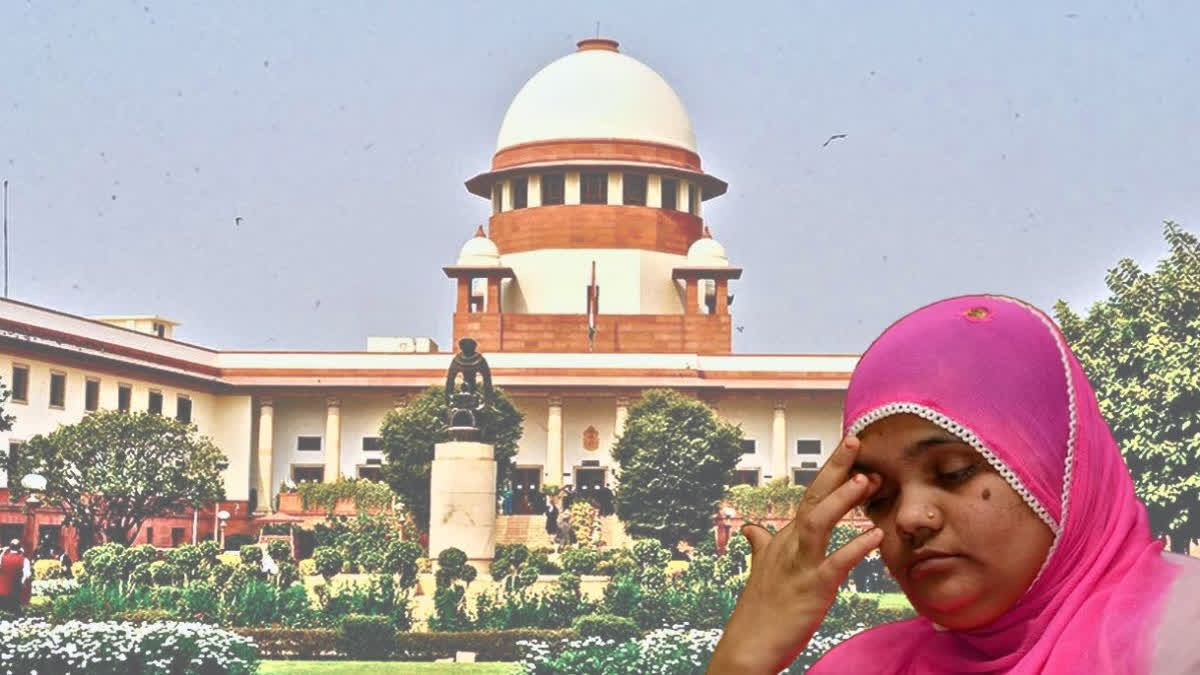New Delhi: Strongly criticising the Gujarat government for the premature release of 11 life-term convicts in Bilkis Bano case, the division bench of Supreme Court comprising Justices KM Joseph and BV Nagarathna Tuesday asked whether the state government had applied their mind before allowing remission to the convicts. The court also expressed concern over the decision saying ‘Today it is Bilkis Bano, tomorrow it can be anybody’.
Raising questions over the state government’s decision, the apex court expressed concern over the application of mind by the state government and the material basis for its decision, considering the heinous nature of the crime and its impact on society. The bench emphasized that the exercise of remission powers must be guided by public interest and objective standards, rather than arbitrary or politically motivated considerations.
The court was hearing the petitions filed by Bilkis Bano challenging the early release of the convicts. The bench had issued notices in the pleas on March 27 and has now listed the matter for further hearing on Monday, April 24. The court will also decide on a review petition proposed to be filed by the government against the court's earlier order.
The government's counsel, ASG SV Raju, appearing for both the Centre and the Gujarat government, told the bench that they would take a call on whether to file the review petition by Monday. Initially, the convicts' counsels sought more time to respond to the matter and urged the bench to adjourn the hearing. However, the petitioners strongly objected to this request, and the bench agreed that while accused persons may indulge in delaying tactics, the opposite side must be given sufficient time to respond.
During the hearing, the bench also perused the records of the case and noted that the convicts had been granted virtually three years of parole while serving their sentence, with more than 1,000 days of parole granted to each of them. The judge questioned the government's policy in this regard and noted that a case involving rape and mass murder cannot be compared with a case of simple murder. However, the respondents' counsel submitted that they were dealing with men who had been in custody for 15 years, and the bench questioned this claim, pointing out that more than 1,000 days of parole had been granted to them.
